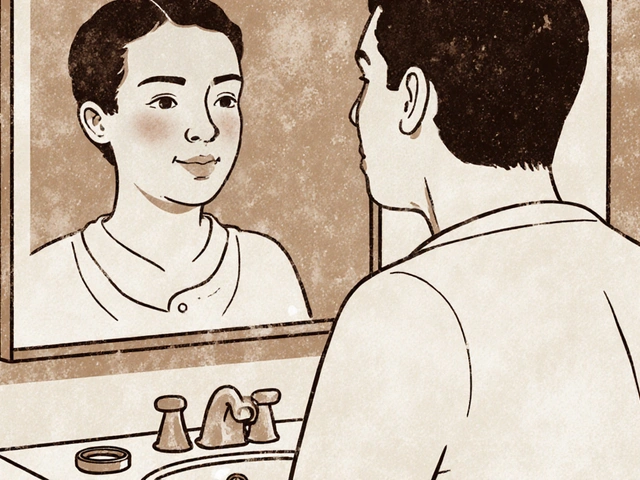Diarrhea: what to do first
Diarrhea is common — usually short-lived but annoying. Most people get better in 24–72 hours. The real risk isn’t the loose stools themselves but losing too much fluid and salt. Here’s straightforward, practical help you can use right away.
Quick home treatment
Start by fixing fluids. Drink oral rehydration solution (ORS) or make a simple mix: 1 liter water + 6 teaspoons sugar + 1/2 teaspoon salt. Sip slowly and often. Avoid sugary sodas, fruit juices, and alcohol — they can make diarrhea worse.
What you eat matters less at first than staying hydrated. Try bland, easy-to-digest foods like bananas, rice, toast, and plain potatoes once you can tolerate solids. Avoid dairy, greasy foods, and high-fiber meals until your gut calms down.
Over-the-counter options for adults: loperamide (Imodium) can reduce urgency and stool frequency, and bismuth subsalicylate (Pepto-Bismol) helps with travelers’ diarrhea and upset stomach. Don’t use loperamide if you have high fever or bloody stools — that could be a sign of bacterial infection.
When medicines or tests might be needed
Consider seeing a doctor if diarrhea lasts more than 48–72 hours, or sooner if you have severe belly pain, fever above 38.5°C (101.3°F), blood in stool, or signs of dehydration (very dry mouth, little or no urine, dizziness). Your doctor may order stool tests to find bacteria, parasites, or viruses and decide if antibiotics are appropriate. Note: antibiotics help some bacterial infections but are useless for viral causes and can sometimes cause more problems.
Probiotics can shorten duration by a day or so for some people. Lactobacillus and Saccharomyces boulardii are common choices. They’re safe for many adults but check with your clinician if you’re immunocompromised or seriously ill.
Travelers: stick to bottled or boiled water, avoid raw salads and street ice, and try bottled condiments. A short course of bismuth or a standby antibiotic (only if advised by a doctor) can be useful for high-risk trips.
Kids and elderly need extra care. Babies can dehydrate quickly — give age-appropriate ORS and call your pediatrician for vomiting, fever, blood, or fewer wet diapers. Older adults should be watched closely for confusion or low urine output.
Prevention is simple: wash hands thoroughly with soap, keep food well cooked, and stay up to date on vaccines like rotavirus for infants. If you’re unsure what’s causing the diarrhea or you feel very unwell, get medical help — better safe than sorry.

- Jun 2, 2023
- Posted by Cillian Osterfield
Diarrhea and Antibiotics: How to Prevent and Treat Antibiotic-Associated Diarrhea
Antibiotic-associated diarrhea is a common issue that many of us may experience when taking antibiotics. To prevent this, it's essential to maintain a healthy gut by consuming probiotics and staying well-hydrated. If diarrhea occurs, over-the-counter medications and oral rehydration solutions can help alleviate symptoms. Always consult a healthcare professional before taking any medication or supplements, and remember to complete your full course of antibiotics as prescribed. By following these steps, we can better manage and prevent the unwanted side effects of antibiotic treatment.
Categories
- Health and Wellness (72)
- Medications (69)
- Health and Medicine (28)
- Pharmacy Services (12)
- Mental Health (9)
- Health and Career (2)
- Medical Research (2)
- Business and Finance (2)
- Health Information (2)
Latest Posts
©2026 heydoctor.su. All rights reserved





